So you want to be a... videogames composer: Alan Wake and Control soundtrack creator Petri Alanko - "I sometimes think film composers have it really, really, really easy"
Tips on breaking into music professionally, from people at the top of their field
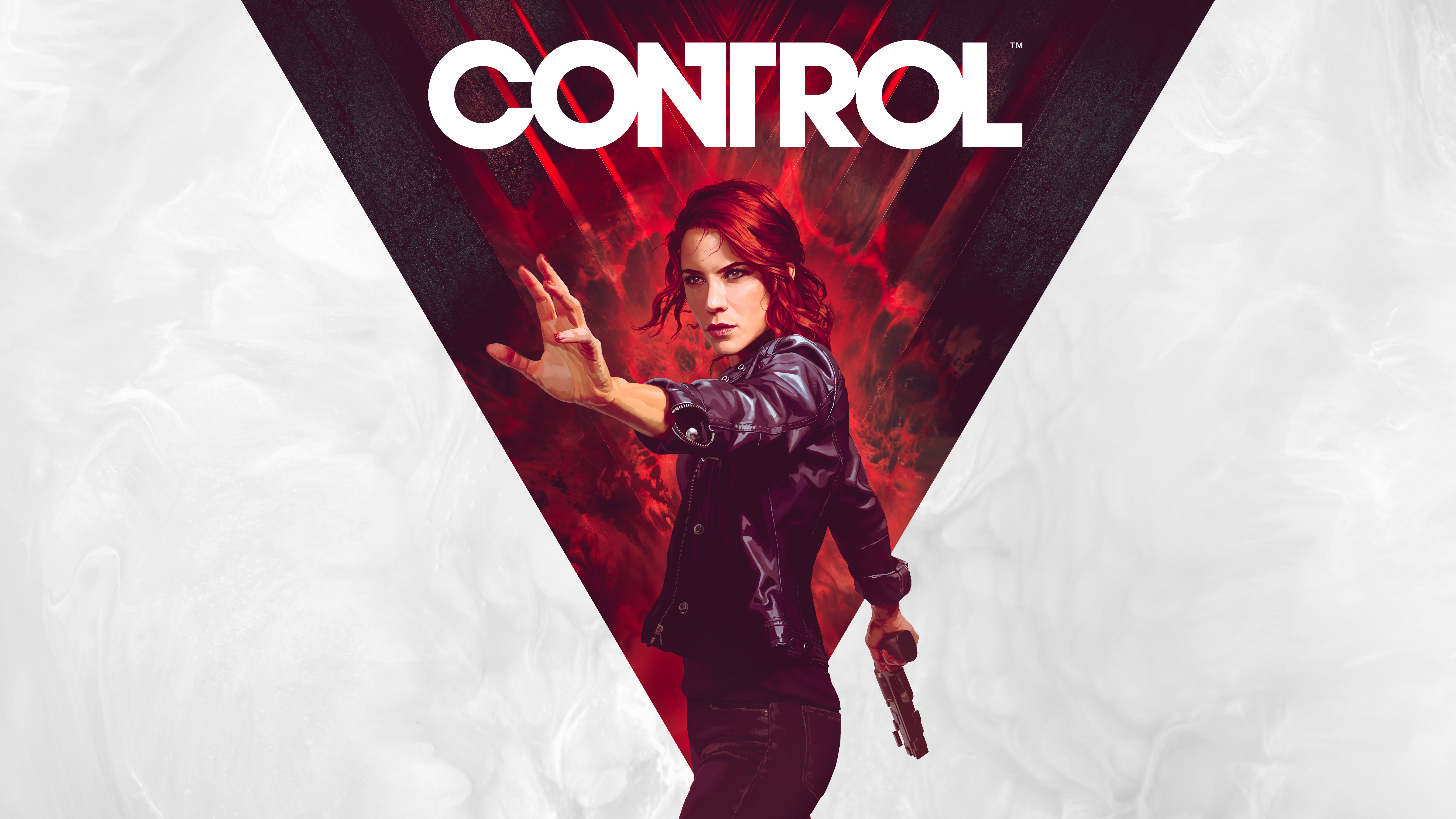
Petri Alanko (aka Lowland) is a BAFTA nominated Finnish composer, musician and producer.
His repertoire ranges from the haunting orchestral/electronic score for Remedy Entertainment’s psycho-thriller, Alan Wake, to elegant and sophisticated classical arrangements for Imaginaerum The Movie, based on the album by symphonic metal band Nightwish. Last year he supplied the the twisted and ominous electronic sci-fi score for Remedy’s cinematic blockbuster, Control.
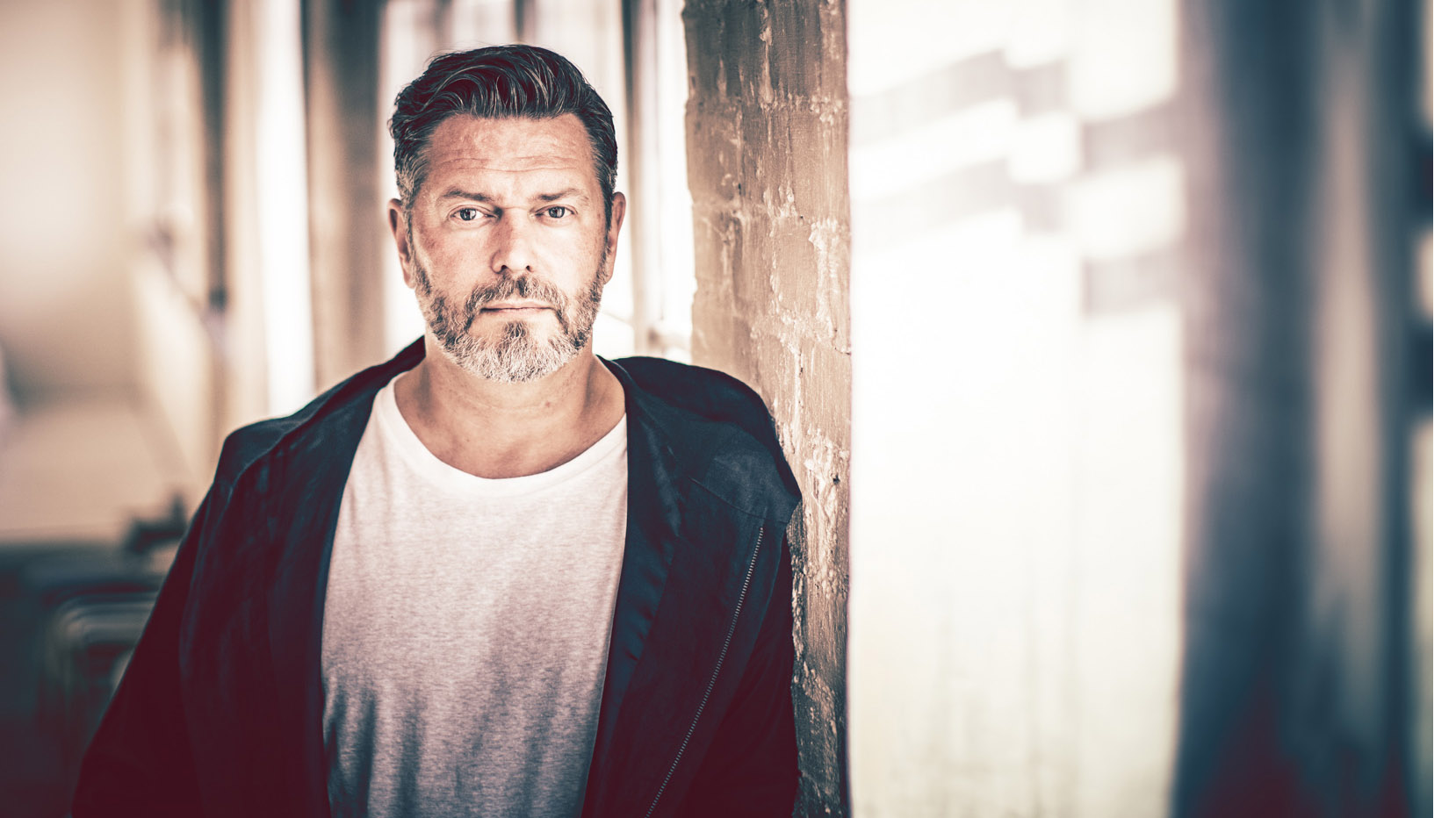
What was your musical background prior to getting involved with video game music?
Well, I spent a good part of my childhood taking piano lessons, then church organ lessons, music theory, musicology and so on… it kind of got built into me little by little, and everything seemed quite natural. I was your regular piano player nerd guy, quite literally.
Let's just say touring around Finland and Scandinavia wasn't exactly the safest hobby.
Then, one day, I got interested in pop music and something changed, I had to get myself a synth, and subsequently those two layers have been competing ever since: I have my classical side and I have my synth music side, and those two, at least nowadays, live in perfect harmony, supporting each other.
I spent a good part of the 1990s in the studio and on the road; whenever I wasn't preparing an album or songwriting or producing, I was playing live, and I learned very early on how one could affect people's behavior with music. It was intense and especially now, decades later, slightly dangerous, too.
Without going into too many details, let's just say touring around Finland and Scandinavia wasn't exactly the safest hobby, just the sheer amount of wildlife jumping at you and your car/bus/whatnot during the night was quite extreme, not to mention the drunk people.
Want all the hottest music and gear news, reviews, deals, features and more, direct to your inbox? Sign up here.
I had quite good technical skills before my "tour/studio life" era, and I sort of honed my psychological side during the gigging, so whenever a challenging situation was put in front of me, I always had a Plan A (plus B and C, too). That proved to be really handy with the brutal deadlines later on.
For instance, trying to fix your Atari STFM 1040 on stage while playing keyboards is one thing, but when you're unscrewing it in pitch dark and there's a yelling crowd about to jump on the stage this makes you really focus on what's necessary… and yes, I kept playing the bassline with my SH-101.
So, what can I say? My musical background consists of extremities, but the extremities are peacefully working together for a much greater good… I sometimes regret that I didn't go further down the classical path, but I guess this is perfectly fine. After the touring life got a little repetitive, I got more and more involved with productions and sound design, and eventually all three; songwriting, producing and sound design landed me the first important gigs.
You have to remember that when I started creating my first sample libraries, the only machines around were Commodores (C64, Amiga) and a few consoles. The PlayStation was years away.
How did you get your first games work?
This is where my contacts came in really useful as I had a few good friends in the software/IT business who, little by little, had turned towards gaming and the gaming industry.
I had produced some tracks with a friend in the trance and techno music scene who worked in a company partially owned by Remedy Entertainment, and during one of their get-togethers, people from Remedy asked him whether he knew anyone who might be able to deliver something they were after: modern orchestral music, with a twist.
I knew what I should do. I just had to travel back home, but I only made it halfway there. I just had to stop and write down some of my ideas for fear of losing them.
He gave them my name and number, and to my rather deep surprise, they called me back several days later. I had forgotten the whole thing, and my thorough surprise probably could be heard miles away during that first call.
It wasn't a simple case, though. It wasn't "we order music for the game" right away, I went into their studio to see what was easily the sleekest, smoothest presentation of anything I'd ever seen, and they wanted me to fill in a cinematic they had prepared. "We'd love to hear some orchestral, moving music in the background."
It was a flyover scene, camera hovering above a landscape that later on became known as Bright Falls from ALAN WAKE. The camera took off smoothly, and I immediately heard a slow attack of cellos move in, some movement provided my violas and violins. I've always had an ability to read picture easily, and turn the picture into music, but that was intense.
The haunting melody I heard in my head was so prominent I knew it would sit in my head even without writing it down. The camera, after a while, landed next to a car, from which Wake got out and was left standing next to it.
I knew what I should do. I just had to travel back home, but I only made it halfway there. I just had to stop and write down some of my ideas for fear of losing them - what if I'd lose it all before reaching the computer?
But even without writing it down I would've remembered it for the rest of my life, if truth to be told. I finished the piece in a flash and sent it to Remedy. I could have soiled my pants about a dozen times, I couldn't eat or drink - and then I received their response: "Yep, we like it. Would you like to have a gig?" Would I goddammit?
How does composing music for games differ to composing for film, or television?
I sometimes think film composers have it really, really, really easy.
The intensity can be really surprising. Since you're not just watching from a "spectator" or a "viewer" seat, instead you're in the middle of it all and you're sort of in your own movie, acting the hero yourself…It creates a special kind of a hook-up to the whole medium. And, since you're ‘in the game’ yourself (and not peacefully watching Tom Cruise save the world whilst eating popcorn), there are a few rules to follow: sometimes what you want to do is too much.
Sometimes the "active" role dictates too heavily and you actually need to pull back the intensity of your writing. You also need to take into account that you shouldn't decorate what's already there, since there's always the danger of turning it all into a funny musical or a Michael Jackson video, where each hand movement features a "SWISH CLAP PHWOAAAR" effect.
And on another level, it is the amount of music needed at times. You might enter the same scenery in exploration mode, being hunted, or being the hunter, just barely alive with low health and so on… you need to create different versions or layers that are going to be played back according to your actions.
I sometimes think film composers have it really, really, really easy. They just tinkle the ivories to a linear scene and laugh (or cry) their way to the ATM. I know a few willing to leap into the gaming world from movie composing, but they nearly always return back to their caves with their tails between their legs. "That was a ton of things they wanted me to do, oh God, oh God…"
So, it's not just the amount of music, it's how it works and how it's being used. I tend to take into account the slow motion stuff; the protagonist must have a story development arc, they must have a past and something they're reaching for through the current events, not too much unlike developing leitmotifs for a movie character, but here it's all moving, changing, and you're doing the changes.
Presumably, the music needs to be dynamic in many games. How does that work?
It's a canceling game, actually: prepare for lousy transitions and ditch them.
With great difficulty and sheer luck! No, actually there's a lot of planning in the background, and a lot of factors need to be taken into account, and especially when you're trying to maintain a level of meaningfulness, harmonic and emotional content, it requires some trickery.
I usually compose as though it were one long piece, and only later on, or so it seems mostly, I take into account the piecing together of the music or dividing the outcome. Truth to be told, it's all taken into account during the making, and I try to produce something that could be leaping or branching elsewhere without too much hassle.
I try to design tracks according to harmonically pleasing changes, but sometimes it just cannot happen. But certain dissonance can be just as pleasing and this takes away most of the difficulties I need to prepare for. For instance, in F# major it's natural to reach B major or C# major (I IV V), but there is no reason why you couldn't end at G major straight from F# major. Or G minor.
It's a canceling game, actually: prepare for lousy transitions and ditch them. After some practising, it'll come naturally and doesn't bother you any longer. It's not restricting as such, it's a little like accepting the sandbox you're playing in.
In reality, it's nowhere near that simple, and basically there are no rules concerning dynamic playback systems that adjust their output according to a ruleset or to the gamer's actions. And nothing needs to happen right away. There's the "old movie editor guy" thumb rule: if the sound effect doesn't feel right where it's supposed to be, delay it 12-13 frames. A little like someone scaring you: you don't feel the adrenaline kick right away, it arrives with a delay.
Technically speaking, you prepare a set for exploration, a set for "enemies around", a set for "enemies aware of you, looking for you", a set for "enemies attacking"… a set for "low stamina", for instance, and you plan your musical piece according to these "states" you need. It's not a restriction, not even close. The "states" are your key to freedom.
Then the playback engine (WWise, for instance, or FMOD) is prepared to add or subtract stems from the output, depending on the "state" needed. The stems are bounced musical stem tracks, for instance "percussion 1", "percussion emergency" or "strings explore". You need to divide your output into what resembles what a mastering engineer might need in order to do his work properly.
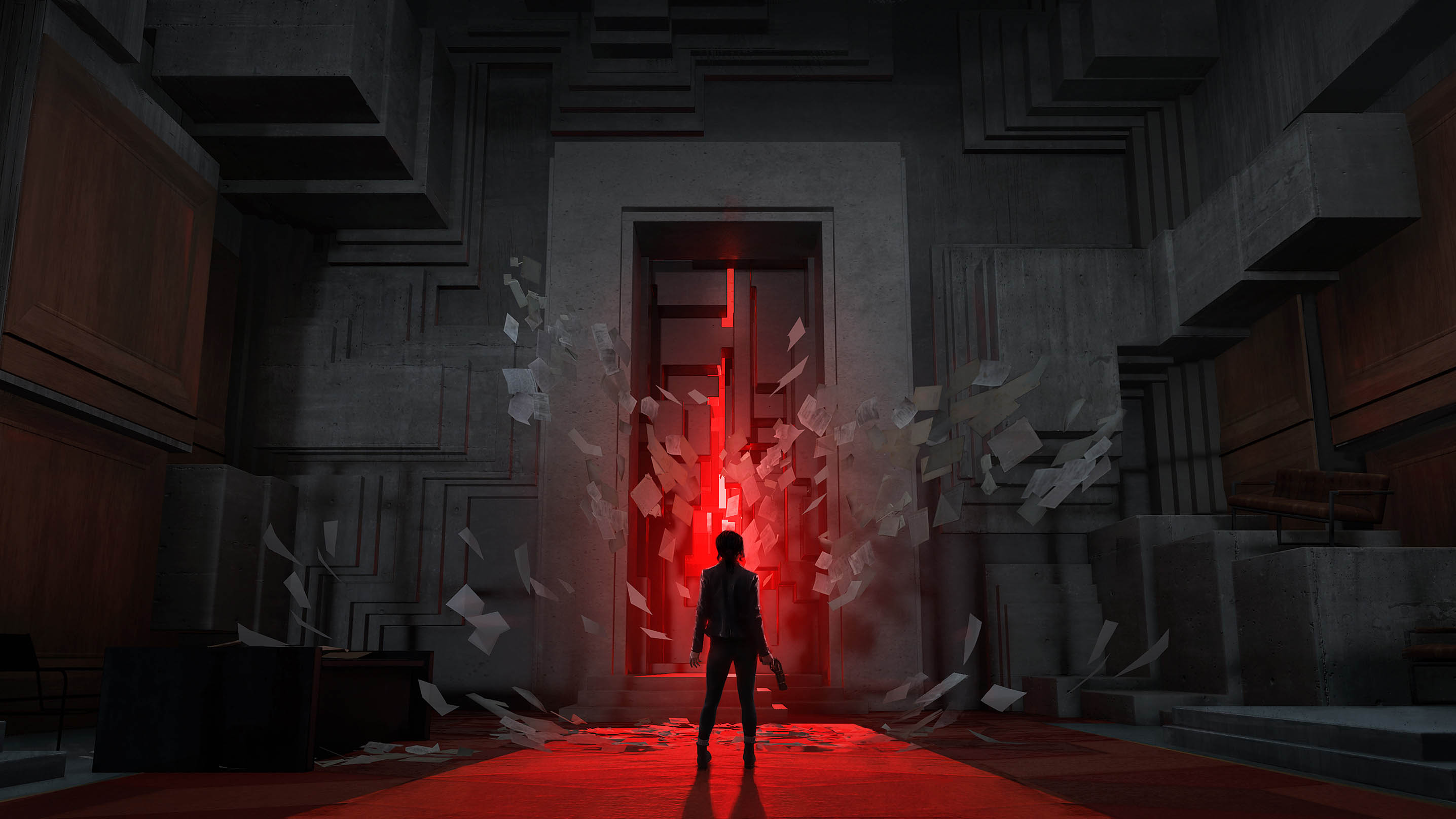
What is the common process you go through when making a game's soundtrack? How are you briefed, what milestones do you go through, and what deliverables are common?
Nowadays, I like to be involved with a project very early on. There's something really rewarding when being involved in the early steps, and I like to embrace the idea when it's in its rawest form.
My milestones usually consist of "Am I happy with this? Can I put this out under my name?”
The first concept pictures tell me a lot about the project’s vision, the first graphical drafts of the antagonist, for instance, can be really rough, personal, menacing and pure - something that gets "hidden" towards the deeper stages of development. I want to talk to the creators, discuss the events in a very free form, embrace the environment, listen to the stories, even ask people to invent something they feel a protagonist or an antagonist would do.
We might have some personal exchange like "hey, what's your dad like?" and they then tell stories about their family, and you get a feeling and further insight from what they say.
I always write a memo book about a project, the pages get filled with details and graphical images depending on what I'm being told and so on… it's very, very rewarding to read my old notes years later.
For instance, a while ago I found my old ALAN WAKE notebooks. There were ten of them and they each tell a different story about the same company, same project, same game. It's the story of the game’s evolution written down, really. In one of the latter books I found a key moment during the game’s development: "Wake's device is guilt, he feels guilty".
I guess this came out after one talk with the then audio/music boss at Microsoft, Mark Yeend. He said that, and it sort of was a revelation. Then I asked around what the Remedy people were thinking, and quite a few guys were really helpful about the whole thing. And suddenly, I needed to write another book. And another.
I usually travel with the milestones in conjunction with the team, so I would say my roadside markings are basically technical. I try my best at scaling the tech world into my own creative cave, but it's sometimes really hard to reach the specialty level of the tech side.
In the creative field, there's not much room for scrumming or agility as the means for a project development method. "What have you been doing yesterday?" "Composing music for the bad guy." "What will you be doing later this week?" "Same. Same." "Next week?" "Same. Most likely. If all goes well."
Heh, actually, it doesn't take that long, but yeah, iterations happen. My milestones usually consist of "Am I happy with this? Can I put this out under my name?”
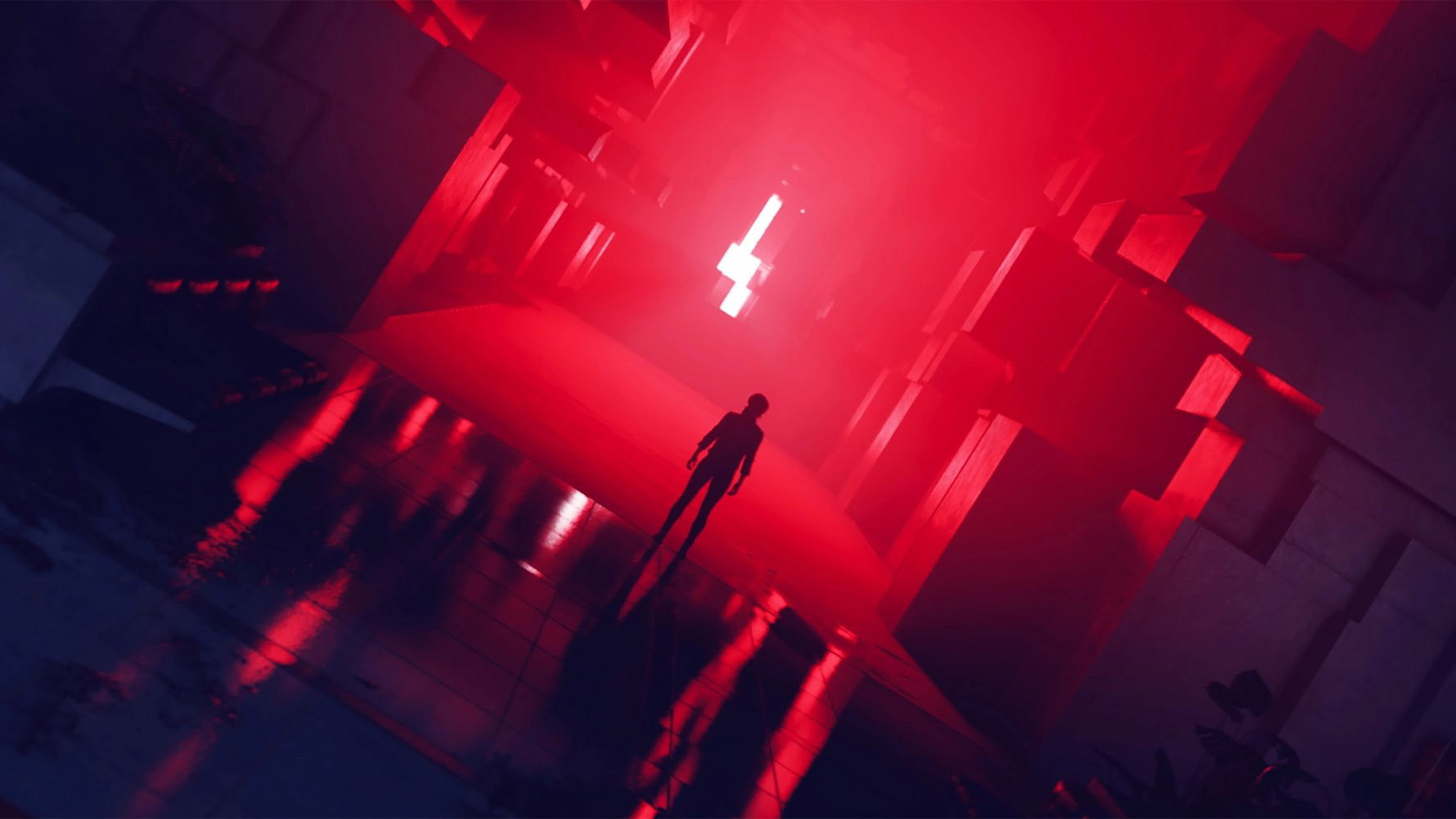
Do you need to be able to read music in order to do the job?
No, but it helps. It's important what you hear. Some people do it naturally, by instinct, even up to very complex levels, and one should never underestimate a musical illiterate.
Of course, there's a beneficial factor that comes with having some level of musical theory and the ability to understand, say, a wheel of fifths. But it's a little like language, really…you can survive years and years without any teaching, you just throw yourself into new surroundings and you communicate with people.
I'd wager to say after a year you're able to deal with your daily activities perfectly, but you wouldn't necessarily be able to write down a thing, especially if you're English and the language is, say, some Asian language that has its own character set consisting of thousands of pictures.
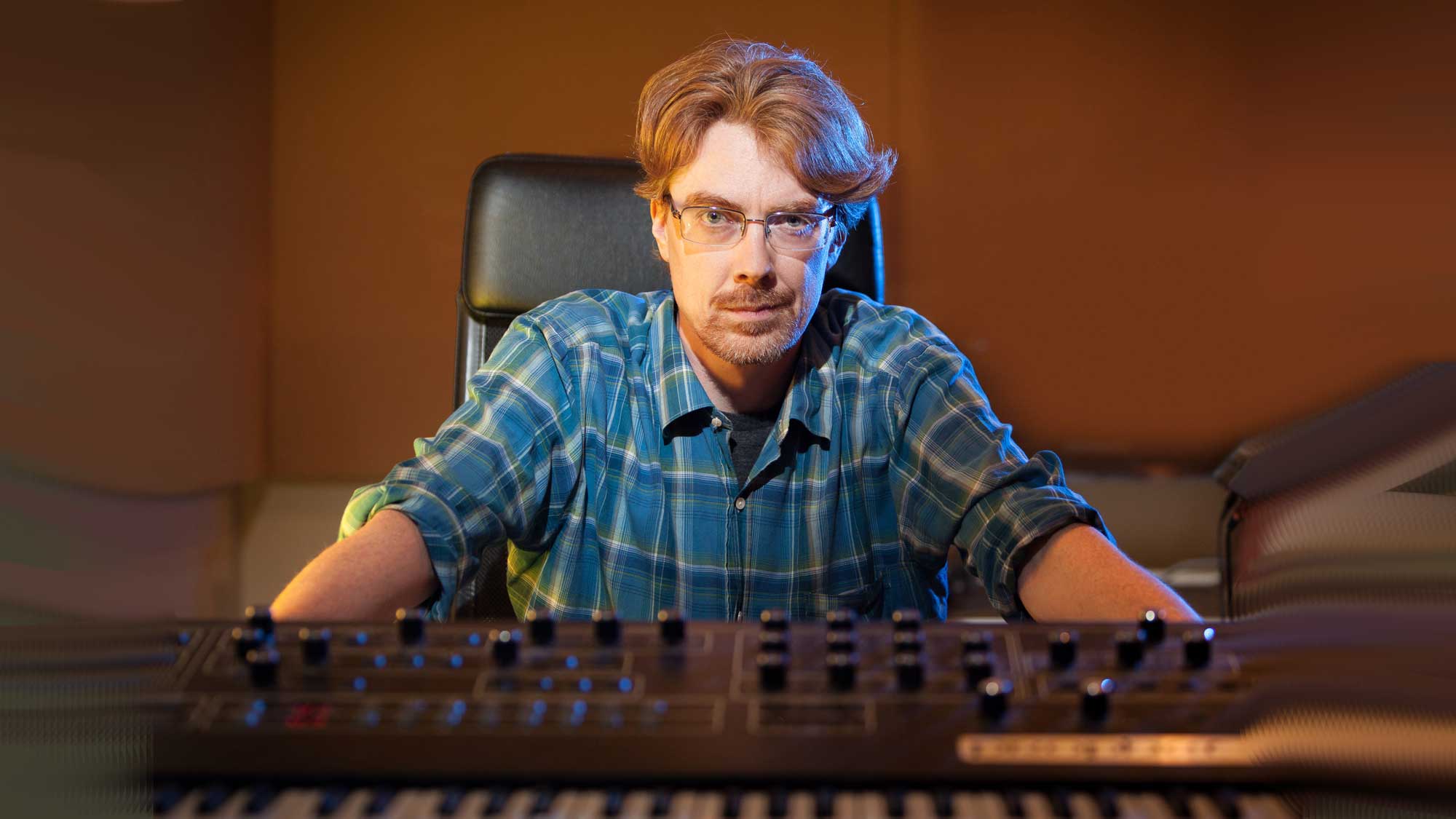
Assassin's Creed, Borderlands and Darksiders man Jesper Kyd Q&A
If you're working with orchestras, it's a slightly different approach, however, as they never play stuff by ear. You need to hand them a suitable set of score sheets from which a conductor will guide them through according to his baton movements.
However, those score writing services can be purchased, and there are a lot of skillful orchestrators who are able to produce a really beautiful set of score sheets. I could do it myself, but why should I, when there are people who do it so marvelously well?
"I don't have time to learn a notation software" is my worst excuse. I can't use any notation software, I'm writing it down by hand, and that takes a long time. I know I should acquire and learn Dorico, but… this year, I've promised myself.
Gear-wise, what are the essential tools for game music composers?
Good acoustics! That's easily number one. A good number two is a hard drive consisting of instrument libraries. You need to be meticulously precise with your file/project file system.
After you’ve established your setup comes the palette: you should sound like yourself, always. No need for being the next Zimmer, Junkie XL or John Williams. You need to create your style – even if your early gigs might consist of soundalikes… Always aim to maintain your own musical personality.
Another consideration belonging to the "acoustic" essentials is that you will need a really good pair of near-field monitors. There are a lot of really good ones around, but I've always used Genelecs for monitoring - I've got a set of The Ones with a subwoofer, a pair of 8260a speakers, a 5.1 set of 8020 "cylon" polished aluminum… and two or three sets of G One with subwoofers.
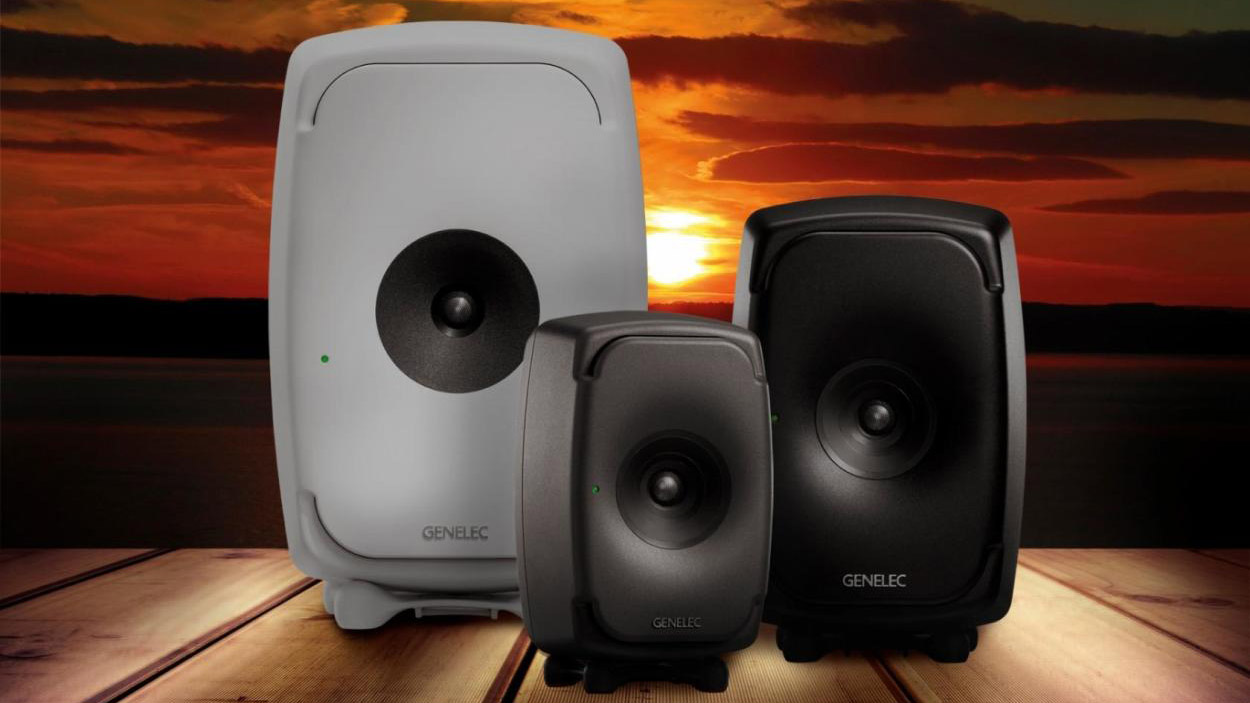
I tried Amphion, but they didn't fit into my style. I've heard other people say the contrary, so it's really a personal preference: some like the ribbon tweeter, some don’t like the sub. I also employ a few sets of really bad quality speakers, to "check" stuff before I distribute anything.
The worse, the better. Sometimes the lowest quality pair of el cheapo multimedia speakers are the best pair for putting your mix together. But you need to be sure about the signal quality, track by track, before you can build the mix with a pair of pure trash.
I love to support the sound of acoustic signals or instruments with analog synths, or modular analog synths - depending on each case. I love using white noise put through a bandpass filter underneath the chugging guitars, to emphasize the rhythm and, well, chugging.
It’s a trick I learnt from Mikko Karmila, a Finnish mixing engineer legend. That guy has made some of the best-sounding mixes I've ever heard. There's something very comforting with analog synths. For instance, a marcato string section might be a little incoherent with their timing, and there are two ways to fix this: either use time correction or add something to support the attacks.
Analog synths fit into this really well, with an appropriately simple patch. I love using Roland and Oberheims for doubling, and I've done a load of support tracks for percussion with my Moog.
There will be times when you need to find a suitable tempo for a section, maybe plan well before a few tempo changes, or to fit a tempo into a frame rate so that most of the beats would find their natural slot in the video clip.
There are a lot of downloadable excel sheets and iPhone applications for this, and I wholeheartedly recommend getting yourself an app called "Tempo Finder for Film Scoring". Another good tip is "Audiofile Calc". If you're using an iPad, consider getting yourself a "Samplr" app and the "Borderlands" granular application. Wonderful stuff.
My workflow is something really crucial, and I take things related to it rather seriously. I need to be fast and a part of being as fast as humanly possible is how you treat your workflow on the desk.
I've used TouchOSC for years, and have honed my three-iPad setup into perfection: one page loads in some of my own stuff, another page controls all the MIDI control stuff, another page mutes or solos orchestral/sequence sections, and its layout looks like a proper orchestra, so you're naturally going for the right sections automatically - and then there are a few pages I did for my Waldorf Quantum, Moog One and Roland Jupiter X.
Trust me, with a decent setup taking care of your mouse clicks and sifting-through-menu-chores even the most tedious procedures feel like a day in the park on a sunny day. If only I had had these modern marvels back in the early 1990s… oh my! They could've saved literally hundreds of hours.
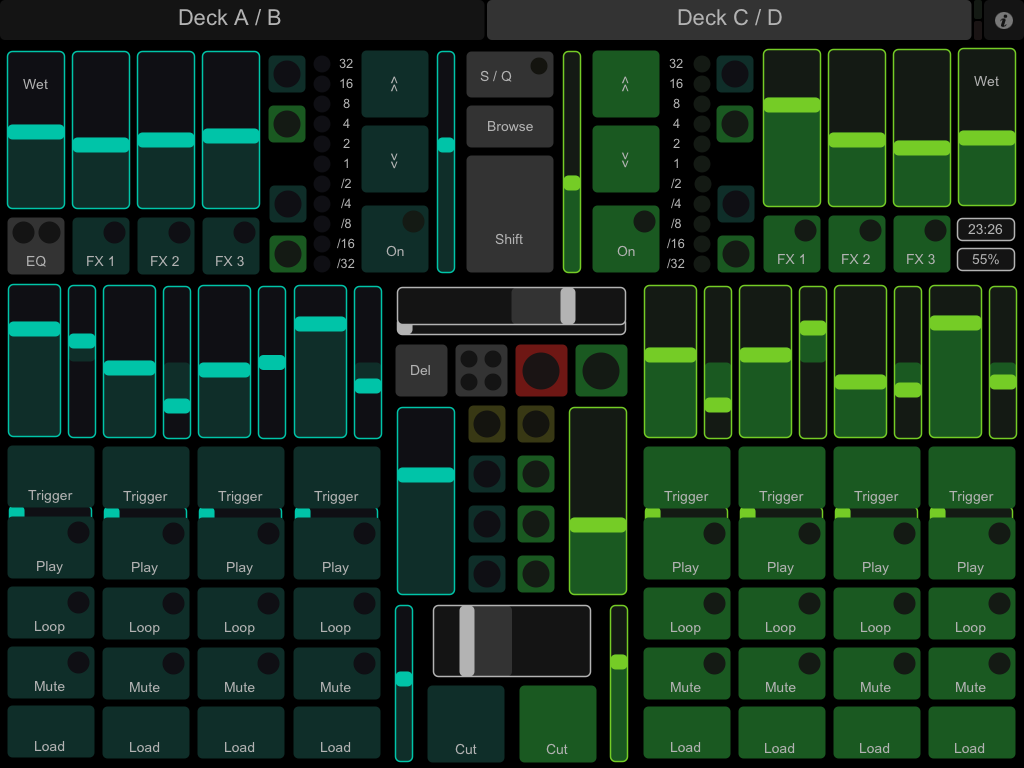
What are some of the common mistakes you see people make when trying to gain work in the industry?
They go with the "first one is always free" bait, which is a poor career choice. You will be known as the guy who pretends to be a professional, yet shares his work as a freebie, only to become replaced by the next freebie guy. Don't be that guy.
Another is to imitate someone else's musical style - the world already has enough John Williams (one) and Zimmers (one… I think). It may take years to hone your sound into a personal order and style, but nothing comes free and cheap, not instruments, gigs, nor your time.
I don't know whether it's really a good thing or not, but I've been told my "sound" is recognizable, and not tied to any genre. I say "don't know", but I take that as a calling card, actually. I recommend people do extra work to gather the molecules for "their own style".
It means they need to take a tour into themselves, to find out who they really are, what are their ups and lows, their pros and cons, people in this profession need to be equipped with a good self-knowledge - not self-esteem as such, although the two are remotely related. What I'm after here is one needs to know how you're reacting when you're severely stressed, for instance. You need to be in control of your most valuable asset: you. You, and your skills.
You need to be very disciplined, the emphasis on this gets even more bold if you're doing your stuff by yourself, without a large team. When it fails, the largest mistake is NOT to ask for help. A good composer knows when that critical point is about to hit, so one needs to be proactive, instead of reactive.
The gaming business is a wonderful, wonderful world. Gaming and other media are taking steps towards each other, and the forthcoming years will make the borders even more faded, I'm sure. With the future development and the graphic quantum leaps, it all shall be one beautiful world, similar to what has happened with TV and movies: there's no longer a content gap, or quality gap.
It all comes down to sharing knowledge. Some think it's not for them to share info, knowledge, tips and tricks, but I have always thought about it a little differently: you must give away to provide room for development, to become better. Which is why I've been writing a monthly column in a local pro audio magazine in Finland, wherein at least 50% of my contributions are just me brainstreaming and giving out what I know.
Eventually the situation is this: everyone can have the very same equipment and software and music libraries, but nobody thinks the way I do. Ultimately, your creativity is the main tool, not the technical gizmos and the libraries.
And then there's one thing I cannot emphasize too much: Never deliver something you need to explain. If the track was supposed to have vocals in it, record the vocals. The developer studios aren't mind readers, and they have plenty of work in the main product, it's not up to them to "imagine a trumpet there and a choir plus a fairy and a heavy metal guitar".
If you deliver something, deliver what you can live with for the rest of your days. I once sent a demo to a company, only to hear it in the final product. Luckily, it was all good, but still mistakes happen, and had I sent a work in progress demo, it'd still be written by me, as stated in the final product.
What can budding composers and producers do to increase their chances of gaining employment in games music?
If you can't find a composing gig, maybe you can be irreplaceable as a sound designer, and that way become acquaintances with the right guys, little by little
It's a cliché, but get to know people, the studios, and most importantly, get to know where the company is coming from and what it is they're putting their hearts and minds into. For instance, I'm not much good for doing My Little Pony-esque material or Animaniacs, but put me into a psychothriller, and I become the night… er… no.
But admit the fact you can't probably do everything. Some are good at just about anything, but that only speaks for the fact they haven't found their own voice. In the early days of 1990's, I videotaped local advertisements and redid their music, sold myself that way, and it turned out to be a perfect way back then.
Nowadays, maybe someone could find their branch by redoing a cinematic of something already published and re-composing it. I'd be very interested to find out how people would reinterpret something I actually am familiar with.
One thing worth mentioning here is the business needs more than just composers. There are technical composers, sound designers, sound and music integrators, music editors… if one gig doesn't land, maybe try something from the neighbouring branch.
If you can't find a composing gig, maybe you can be irreplaceable as a sound designer, and that way become acquaintances with the right guys, little by little. If you're a good type and you're trustworthy and easy to get along with, those features alone are worth a lot. Add in an ability to keep schedules and budgets, and be a quick thinker and an avid problem solver with more than adequate WWise skills… and you'll find yourself in an Audio Director position one day.
Just don't give up. Maybe today you’re taking your first steps, but next year you're running marathons.
Finally, which of your projects are you most proud of and why?
Well, all of them, heh! It's not easy to work in this field, and some colleagues have succumbed to the burnouts, which is a pity. I could say I've been lucky to be a control freak, as it has kept me going and going. I've always had the hunger to learn and adapt new tricks, and some of those came in really handy with CONTROL.
There are two tracks on the soundtrack that are especially dear to me, of which I'm proud of. One of them is "Sankarin Tango (Tango of a Hero / Hero's Tango)", for which Sam Lake (creative director) wrote the lyrics. It was one of those really rare and odd cases where the lyrics write the music, too.
In the Finnish language, some things resonate phonetically in a fluid way, and sometimes a line of poetry forces you to think musically. This was the case with the tango, and the whole thing came out really quickly, almost unforced, flowing naturally.
Now, I'm not a singer at all, I can manage a vocal, but… no, hell no. Singing is a state of mind, and I don't want others finding out about my states of mind while doing vocals. However, when Mr. Suosalo (Ahti's actor) took the piece, he sung the vocals in what was basically two takes. He did five, but I used the second one almost as is. What an incredible guy!
He literally channeled all the Finnish classic tango crooners of the 1960's. Another favorite track on CONTROL's soundtrack is where our protagonist Jesse finally accepts her newly found assignment as the Director of The Federal Bureau of Control - "Finis Est Principium Alterius".
It's her superhero theme, the main theme being played in major harmony throughout. It was one of those happy revelations, where you just find it "oh, it's gonna be like this". Her voiceover sort of coronates the theme.
Another similar moment, I must add, was present in QUANTUM BREAK's "The Whisper" and ALAN WAKE's "Departure". They're very defining moments storywise, I'm really proud of the emotional impact of each. There's something in CONTROL that emphasizes the size of the events and the building environment and its inner space/hell/whatever.
I love the bass-heavy moments of the soundtrack a lot. It's almost like the heavy concrete in the building is shouting at you "get away!" "Soror Et Frater" is a good example of this.
There's Hiss (hostile paranatural force) bending the tunings in the end with its evilness, there's Jesse fighting her way through, her lost brother and everything - time and space, good and evil - between them. I'm very proud of how good the whole soundtrack sounds with all its tiny conceptual details.
With thanks to Laced Records, who enabled this series of composer Q&As, featuring some of the most famous and unique talents in the increasingly popular world of game soundtracks.
Laced Records has worked with a range of partners - including Bandai Namco, Bethesda, Capcom, SEGA, and Square-Enix — to release soundtracks for handcrafted indies, classic gaming series and AAA blockbusters. The Laced Records label is part of Keywords Studios, a technical and creative services provider to the video games industry, with 50+ operational studios across 21 countries and four continents.
MusicRadar is the number one website for music-makers of all kinds, be they guitarists, drummers, keyboard players, DJs or producers...
- GEAR: We help musicians find the best gear with top-ranking gear round-ups and high-quality, authoritative reviews by a wide team of highly experienced experts.
- TIPS: We also provide tuition, from bite-sized tips to advanced work-outs and guidance from recognised musicians and stars.
- STARS: We talk to musicians and stars about their creative processes, and the nuts and bolts of their gear and technique. We give fans an insight into the craft of music-making that no other music website can.
